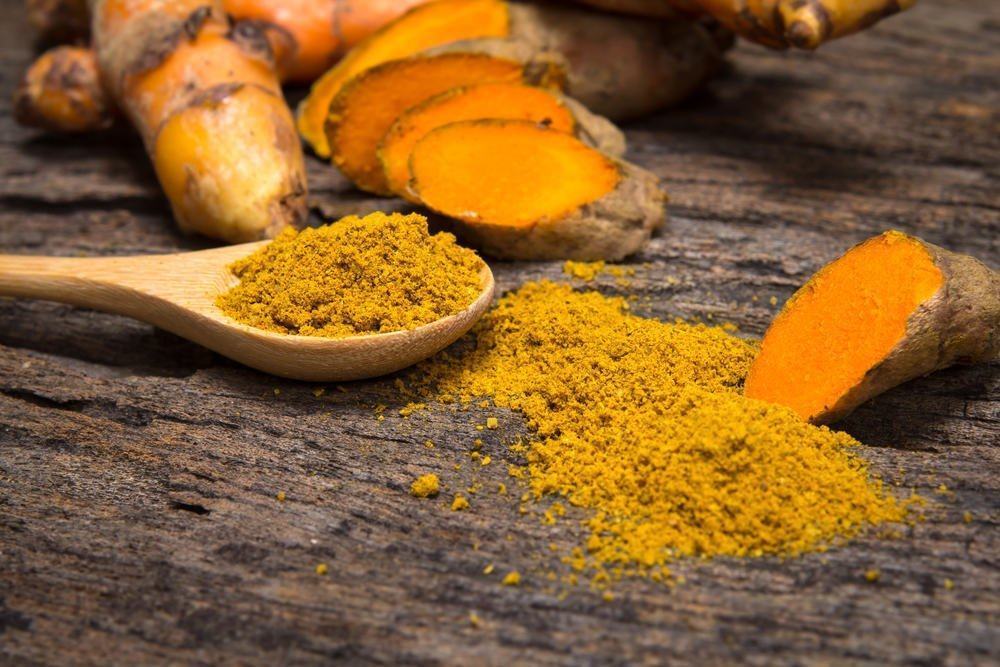Contents:
- Medical Video: Mayo Clinic Minute: Are there health benefits to taking turmeric?
- Benefits of turmeric as an anti-inflammatory
- Benefits of turmeric as an antioxidant
- Benefits of turmeric for the health of the nervous system
- Benefits of turmeric to reduce the risk of heart disease
- Benefits of turmeric to prevent cancer
Medical Video: Mayo Clinic Minute: Are there health benefits to taking turmeric?
Stick with a yellow color and a distinctive aroma, turmeric is one of the kitchen spices that is often used in various dishes, especially in Asia. The component in turmeric, called curcumin, is the main substance that forms turmeric and gives it a yellow color. However, curcumin also provides benefits in deep turmeric to help maintain health and prevent disease.
As the main component that forms turmeric, curcumin is believed to cure various diseases. Since 1900 BC, many health practitioners at that time used turmeric to overcome skin, respiratory, digestive, wound, and even liver diseases. Recent technological sophistication then proves that what plays a major role in curing these diseases turns out to be curcumin. Based on research, curcumin is antioxidant, anti-inflammatory, anti-cancer, and is protective of the nervous system.
Benefits of turmeric as an anti-inflammatory
Inflammation is an important process that occurs in the body. When there are parts of the body that are injured, the inflammatory process will occur as a form of resistance to incoming foreign objects such as bacteria. Without an inflammatory process, pathogens from the outside will easily enter our bodies and damage the body's cells. This type of inflammation is called short-term or acute inflammation. The problem occurs when the inflammation that occurs is long-term or chronic inflammation which can then cause damage to the tissue and spread throughout the body. This can cause various degenerative diseases such as heart disease, stroke, metabolic syndrome, cancer, and Alzheimer's.
Curcumin is a strong anti-inflammatory, so it is associated with the prevention of diseases caused by inflammation. Curcumin works by inhibiting NF-kB, a molecule that works in the cell nucleus and triggers the emergence of genes that cause inflammation. Curcumin is considered to work up to the molecular stage so that its potential in reducing inflammation is equated with anti-inflammatory drugs but has minimal side effects.
Benefits of turmeric as an antioxidant
In addition to inflammation, free radicals are also believed to cause damage to body cells and tissues causing disease. Free radicals are very reactive and tend to attack important substances such as fatty acids, proteins, and DNA. Antidotes to free radicals are antioxidants. Curcumin is a powerful antioxidant that can neutralize the reactive properties of free radicals. But not only that, besides providing antioxidants, curcumin can also stimulate enzymes in the body to produce its own antioxidants.
Benefits of turmeric for the health of the nervous system
One of the hormones that work in the process of forming new connections in the brain is Brain-Derived Neurotrophic Factor (BDNF). Some brain-related diseases such as depression and Alzheimer's are usually associated with a decrease in levels of these hormones. Curcumin can increase BDNF levels in the brain making it effective in preventing brain-related diseases or decreasing brain function due to aging. In addition, it is possible that curcumin can help improve memory because of its effect on increasing BDNF.
Benefits of turmeric to reduce the risk of heart disease
The role of turmeric against heart disease is due to its effect on inflammation and free radicals. But besides that it turns out that curcumin also plays a role in increasing the work of the endothelium that lines the blood vessels. Endothelial dysfunction is one of the main causes of heart disease because it affects the ability of the endothelium to regulate blood pressure, prevent blood clots, and other functions that are important for heart health. Some studies reveal that curcumin works effectively, as effective as exercising and taking drugs.
Benefits of turmeric to prevent cancer
Some studies reveal that curcumin can affect cancer growth by working at the molecular level. One of the cancers studied was colon cancer. A study was conducted on 44 men who had lesions in the colon, these lesions will usually turn to cancer later in life. During the study, subjects were required to consume 4 grams of curcumin per day. After 30 days the lesion in the colon decreases by 40%. Other studies have shown that curcumin reduces angiogenesis (growth of new blood vessels in tumor cells), prevents metastasis (spread of cancer), and contributes to cancer cell death. Although several other studies are still in the form of laboratory studies of animals, it is hoped that later turmeric can be used in conjunction with existing cancer treatments to increase the likelihood of cancer patients fully recovering.












